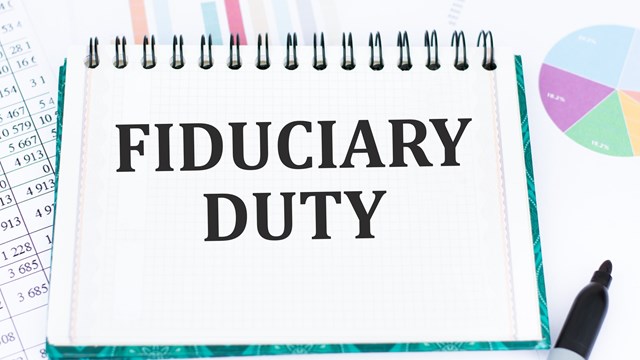Of the many responsibilities a managing agent has to fulfill for a homeowners association, one of their most vital is coordinating the flow of information between the board and the association members, and keeping that information secure. That adds up—even in a small association, there's a lot of paperwork to handle, including financial records, legal documents, homeowner correspondence and management statements from board meetings—and it's important that the documents be available to board members when needed. The flow of information between the managing agent and board is a vital part of their relationship.
Usually, this cooperation isn't a problem. Most co-op and condo boards enjoy positive, collaborative relationships with their managing agents, and information flows easily between them for a smooth day-to-day routine.
Your Place, or Mine?
All association members are entitled to view certain documents, so it's up to the management company to get the proper information to them in a timely and organized manner. Because the system works so well, not all co-ops and condos feel the need to keep copies of the records on their premises. While it's up to the managing agent to keep this material in a safe and organized fashion, sometimes copies of the paperwork will be held in a small office in the building or by the board members themselves, so that in case of an emergency—physical or procedural—there's always a copy of important documents safe somewhere.
Such is the case for Patricia Allegretta, a board president in North Bergen, who says she keeps copies of everything that her HOA's managing agent has.
"I get all records, and I keep them all in a storage closet," Allegretta says. "There is nothing that I don't see, whether it be financial records, bills for each month, insurance paperwork, any time the fire department comes or people check the boiler—anything when it comes to work done around property. All of that."
Entitlement
When you're a member of an association board in a co-op or condo community, you are entitled to unfettered access when it comes to the records and documents that have to do with the development. This is a key component of the agent/board relationship.
"A managing agent is an agent of the board, so they are required to show board members everything," says attorney Wendell Smith, a senior partner at Greenbaum Rowe Smith & Davis LLP, a law firm based in Woodbridge and co-author of the book New Jersey Condominium and Community Association Law, arguably the definitive legal work on the subject. "I have never heard of an issue involving a board member not getting all the access. They are the board's records, so board members can see it all."
According to the New Jersey Condo Act, "The obligation of the managing agent is to provide such records of services, material and expenses on behalf of the association, and these records should be freely available for inspection by the association's officers and directors on a reasonable basis during normal business hours."
This rule does not apply to co-ops, however. The only instance when this doesn't qualify is when there is some conflict of interest that the board member has with a particular piece of paperwork. It's essential that board members not leak important information or talk about sensitive issues.
"The management contract may also have some constraints written in, so they are not in there watching every check—I don't think that's a normal thing," says Smith. "Sometimes there are situations where the board members have to sign a confidentiality agreement and if they don't sign it, they may not be entitled to access confidential information."
All Access Not The Same
The access that homeowners receive is different than that of the boards. Shareholders and unit owners are entitled to see most of this same material, although they don't have 100 percent access like a board member.
"All our board members get this type of access and get copies, although I'm not sure anyone else actually keeps them like I do," Allegretta says. "Other owners get copies of some of the documentation as well, but they are not as detailed as what I get."
Any owner can view the minutes at a board meeting, and they can also inspect certain documents at the office of the managing agent. But it must be inspected there and not taken out. Anything that's sensitive that's required to be retained by the board would not be available to shareholders and unit owners. There is a difference.
"With homeowners, it's a little different," Smith says. "Under the New Jersey Condo Act, open to inspection are all receipts and expenditures, shares of common expenses, interest in common surplus."
Generally speaking, Smith continues, a homeowner's access to HOA documents and information isn't as broad as that of a director. It's given on more of a need-to-know basis—otherwise, there's too much opportunity for mischief.
"Can unit owners come in and examine everything? No," Smith says. "[If everyone has access], it becomes a fishing expedition. We've been involved in some litigation with this. There has to be some reasonableness. [Non-board association members] have to request what they want and say what the relevance is."
So Much Paper, So Little Time
Typically, managing agents distribute a statement to HOA board members each month containing the financial records, a recap of the checks that were issued, and other important things that will be available to everyone—non-board members included—at the board meetings.
Of course, the information isn't always easy to understand, and a good managing agent will take on the responsibility of explaining any complicated material and intricacies to the board.
"I call our manager, and he helps me through anything that I don't get," Allegretta says. "He's very good about explaining everything and he sends me everything in a timely manner. He usually sends me a monthly statement, and then a few months later he sends more detailed information about that month."
Switching Power
One case for keeping copies of important documents rather than relying on the managing agent holding everything involves the possibility of switching management firms someday. Although most professional firms are good about turning over all of an association's documentation to a new firm regardless of the reason for the switch, distribution of that paperwork in a timely and organized manner doesn't always happen. Even if the transition goes off without a hitch, it's wise to have copies of documents and records on-site to make the switch less reliant on the outgoing management firm.
"Keeping records on-site in the association office is probably a smart thing to do, considering transitions aren't always smooth," Smith says. "I haven't heard of this being too much of a problem, but that's why it's always a good thing for someone in the association to keep the paperwork themselves."
Allegretta doesn't necessarily keep her association's records on-site because of management transition; she just thinks that it's good business sense to be involved and have the documentation you need in case trouble arises.
"I keep them organized by month, and it's not too cumbersome—why wouldn't I do it?" she says. "I think it's important for me as a board president to maintain the records and understand what's going on with the property."
Board members have a responsibility to stay informed and it's up to them how much information they want to get and retain in their private records. A managing agent will always have that information available, but if something is needed at 2 a.m., that paperwork won't be immediately available.
A building or association's important documents, paperwork, and records are the community's lifeline: they serve to show where the association has been, what it's current obligations are, and plot a course toward where it's going. Keeping records secure—while still making them available to the people who need them - is one of the many things a good managing agent and involved board of directors will insist upon.
Keith Loria is a freelance writer and frequent contributor to the New Jersey Cooperator.







Comments
Leave a Comment